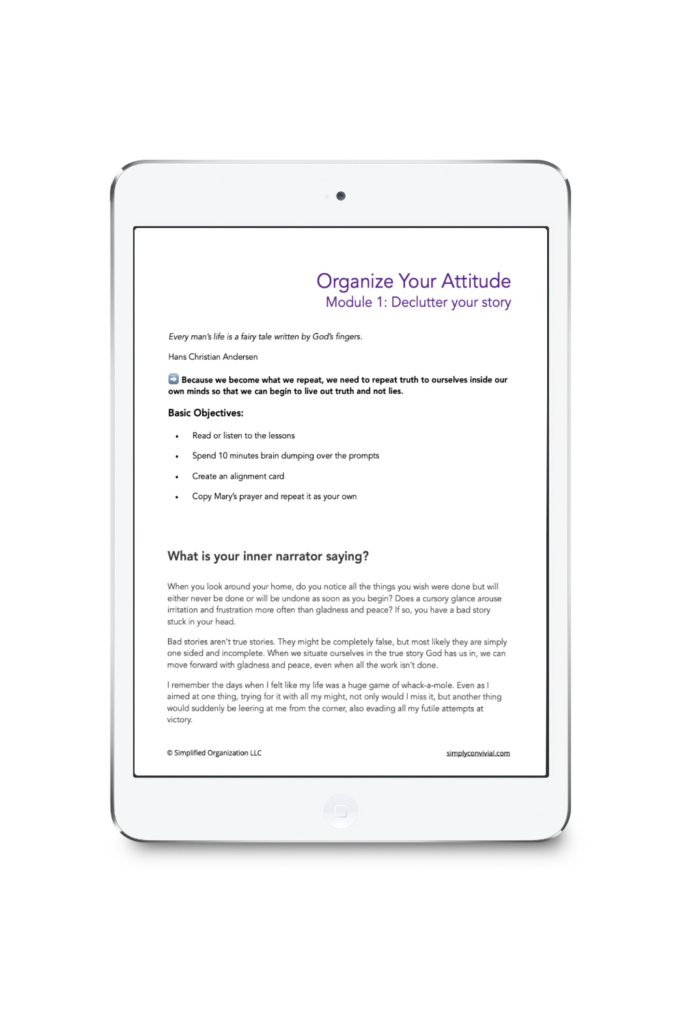Living Your Biography
Life is a story.
There is the big-picture story that God is telling from beginning to end, a story where we are just bit players adding color along the way. But, within the big picture, our little bit roles are yet complex and stand-alone stories as well. Your life is the story of you.
That means that right now, today, you are writing your biography.
What will be included in your biography? What types of events are included in biographies of great people? What types of events are included in biographies that are fascinating to read?
Biographies would be boring if there were no hard or scary parts. Difficulty makes the story interesting. Difficulty shapes us and makes us better people – when we accept the difficulty as a challenge and rise to the occasion.
Life is a story, and this is your biography happening now; therefore, do not be cast down when difficulty comes.
My son, the temptation to fuss about your work is like a mini-dragon or a mini-pirate, come to steal and kill your joy and your strength. But resisting it, fighting it, and overcoming it increases your joy and strength. You can foil the dragon’s plot, and the dragon’s challenge is even how it happens. You must learn to fight the mini-dragons so you will be ready when bigger and more dangerous ones come.
My self, there is no glory and no growth without dragons to fight – temptations to resist – and obstacles to overcome – hard duties to perform. We are sanctified through trial, not by ease. Would you be a better Christian, a better person? Then welcome the hard parts of life.
Count it all joy, my brothers, when you meet trials of various kinds, for you know that the testing of your faith produces steadfastness. – James 1:2-3
Life is a story, and your biography is being written as we speak; therefore, be careful how you respond. Your responses determine what kind of character you are.
My son, it is easy to imagine yourself as a strong and brave soldier, and to think that what you believe yourself to be in your imagination is what you actually are. But what you actually are will be shown in how you respond to challenges. If you would be brave, you must do brave things. If you would be kind, you must actually treat people kindly. If you would be creative, you must actually make things. Who you are will be shown in what you do and how you respond, not in daydreams in your imagination.
My self, if you imagine yourself as a kind, loving, diligent mother, then you are actually going to have to be kind – even when the children are not – loving – even when the children are resistant – and diligent – even when you’re tired. Reading and thinking about virtues is not adequate; they are developed through practice, not through daydreams.
Life is a story, and you are living your biography; therefore, know that the events you wouldn’t choose are the ones that will make you who you become.
My son, we would all choose to live a life of ease and prosperity, but God rarely grants that because it is rarely good for us. God’s will is our sanctification, not our earthly comfort. God sends us all our circumstances in order to teach us how to be more holy.
Every hard thing is an opportunity to learn and grow, so turn to God and ask Him to shape you with His providence rather than try to fight or ignore it.
My self, the temptation to become irritable is precisely the opportunity to grow in patience. Becoming patient does not happen when nothing occurs that irritates or frustrates. Patience comes when we exercise it, and we can’t exercise it without the difficulty that demands it.
So, this week let us pay attention to our responses. Instead of being caught up in the heat of the moment, look at it as a biography in progress. How would you want it to be written? What do you want said of you? Make that true.
Thinking about life as a story helps keep the right now in perspective. It is a way to think about now in light of the past and of the future.
It doesn’t have to be complicated. If I am a character in a story, and if that story continues past this moment, then what I do now shapes what happens next in my story. Pretty simple, yet pretty revolutionary.
Is your biography about Right-Now-Me or Future-Me?
Instead of thinking about what Right-Now Me wants, think about what Future Me will want.
My son, Right-Now Me usually wants to gratify its own appetites, but Future Me regrets such indulgences. Choose well right now for the sake of Future Me. Will Future Me want to play with friends later? Then Right-Now Me needs to complete its work in a timely fashion. Don’t let Right-Now Me squander Future Me’s time and opportunities through dawdling.
Myself, Right-Now Me always wants to make the easy choice and indulge itself. Future Me wants to wear a smaller dress size and feel energetic. Future Me wants a reasonably tidy house and dinner on time. Future Me wants to be a happy mom with happy children. For Future Me to get what she wants, Right-Now Me has to choose the path of Right-Now sacrifice in the hope of future glory and grace.
Instead of thinking about how Right-Now Me feels, think about changing what Future Me will feel.
My son, Right-Now Me feels the lessons and the work is never-ending, but it is only acting on that feeling (by not acting on your work) that will make that feeling true. Right-Now Me can feel that way, but Future Me doesn’t have to if you persist diligently despite your feelings.
Myself, Right-Now Me likes to feel sorry for itself and stay stuck in self-pity and frustration because it’s easier than rolling up one’s sleeves and getting down to business. But Future Me will appreciate that tackling not only because it will be done, but because it is how self-pity and blues are defeated.
Instead of thinking about where Right-Now me is, think about where you want Future Me to be.
My son, Right-Now Me is a child. Future Me will not be. Future Me happens in a straight line from Right-Now Me; there is no magical transformation that occurs at 12 or 16 or 18 or 20. The choices Right-Now Me makes shapes who Future Me will be.
If you want, when you are grown, to be strong, you must practice now. If you want, when you are grown, to be wise, you must learn now. If you want, when you are grown, to play the piano for Sunday mornings, you must practice your scales daily now. What you want in the future, practice for now.
Myself, everything Right-Now Me does is a seed which will bear fruit which Future Me must eat. Is Right-Now Me planting for a harvest of peace and joy or of heartache and toil?
Make choices based on writing a better story for Future Me, rather than indulging Right-Now Me’s appetites.
The story isn’t always about you.
Life is a story, and it’s not all about you; therefore, realize that there are millions of competing stories going on at once.
You see yourself as a hero in your own story, but so does each person in the grocery store. Who are you in their story? You’re just background color. Perhaps you’re even a petty annoyance. You’re not usually the big shot.
My son, when you feel overwhelmed by a trouble, calm yourself down by changing the perspective of your story. Instead of thinking of this incident as its own drama, with yourself as the misunderstood hero, think about this as happening while millions of others are experiencing illness, death, birth, hunger, and many other much more important troubles than yours. Deal with it, do the right thing, but don’t inflate the issue.
My self, I know how difficult it is to step back and get perspective on my own situations. But that doesn’t make it less effective or less needful. Don’t get disillusioned nor be hardened. Don’t get a bad attitude about needing to take a deep breath and shift my focus; be humble enough to stop thinking about myself.
Life is a story, and it’s not all about you; therefore, pay attention to what sort of character you are in other people’s biographies.
Who do you want to be in their story? Use that question to determine your response. It is what you speak and how you speak to others that makes you a friend or foe, a help or hindrance, an ally or a villain. How you actually treat others is more important that what you think you are like.
My son, to be a friend to others, you must be kind to them. To be a hero to them, you must think of their needs first. It is harder than it seems like it will be, but it is worth it.
My self, if you love your children, you will be loving to them. It’s harder than it seems it should be, but it’s not complicated: Love is patient and kind, it is not irritable or resentful. If I do not love my children, in action and in truth, I am the wicked stepmother in their story, no matter what I’d rather tell myself.
Life is a story, and it’s not all about you; therefore, think of others’ stories before your own.
How can you respond so that conflicts resolve toward a happy ending for both their story and yours?
Let each of you look not only to his own interests, but also to the interests of others.
When you think about finding a solution to a problem, do not think about yourself alone. You are not the only one involved. What response can you make that is right for you and helpful for them? That doesn’t mean always giving people whatever they want, but it means not being grabby or rude or harsh.
My son, this is called a “win-win solution.” One way to win is to help others win, and to find your happiness in helping them.
My self, it is not in the children’s interests for life to be made easy for them, but neither is it in their interest for all decisions to be made according to my own preference and convenience.
So, this week respond to others in such a way that you are not a villain in other people’s biographies.
Keeping Productivity in Perspective
Once upon a time, my week did not at all go as I had planned. It was a break week in our homeschool routine, so I had all sorts of things I wanted to get done around the house and online.
Plus, it was the week before Easter, so I also had to prepare our family celebrations, as well.
I started out strong: a cleaned my desk, did a bunch of laundry, tidied up school things, did a bit of planning for next school year, and organized the upper kitchen cabinets.
But, Wednesday afternoon, I started feeling off. When I woke up Thursday morning, I had a fever and was definitely sick. Besides congestion, I also had a raging headache that Tylenol wouldn’t touch.
So all those other items on the to-do list? Not going to happen.
Easter? Pretty much a wash. And that on a year where one of my yearly goals was “Celebrate holidays better and establish more traditions.” Hopefully staying home sick from church on Easter Sunday won’t become a tradition.
It was very tempting, then, to feel sorry for myself, to feel restless because my plans weren’t going to happen, to get frustrated with people making more work when I wasn’t doing any.
At one point I worked myself up so much thinking about all my disappointments with the week that I was forced to stop and say, “Really? Is it really that big of a deal?” No.
I was telling myself a story in my own head, and it was a frustrating, maddening story full of self-pity. Was it a true story? No, it was a selfish story. We need to realize when we are telling ourselves a story that is simply not true and stop it.
It takes a lot of discipline and will power, but it is the key to eliminating so much frustration and anger in our lives. You know how you can tell whether or not a story is a true story? By its fruit. What response is it encouraging? Self-pity? Anger? Guilt?
Change Your Story
Take your situation and change the story. Begin with a prayer of gratitude for what is good – taking the time to seek out what is good is better than enumerating to yourself all that is wrong. A prayer of thanksgiving is God’s recommended tactic for improving our attitude (see Colossians 3:15-17, 1 Thessalonians 5:18, and Philippians 4:6-7)
So, I made myself stop and change the story of the week.
Because I did not give in to procrastination, I did get my office area cleaned up, which had been bothering me for weeks. While listening to a great audio lecture, I did reorganize my kitchen upper cabinets, so now I don’t have to worry about avalanches when I make dinner.
If I hadn’t gotten sick, I would have been all go-go-go all week, trying to squeeze in as much as possible and would have gone into the last school term worn out instead of rejuvenated.
I was forced to rest and have time to be still and relax and even nap. Because I was sick, I had the time to read two novels that I wouldn’t have gotten to. I had slow, lazy snuggle time with my 18-month-old.
The mess that seemed to be growing rapidly while I rested actually did not take that long to recover from once I was better.
And you know what? Easter still happened even without my efforts. There were no hot cross buns and no ham, but there were Easter baskets and an egg hunt, Easter music blared over the speakers, and pleasant times meandering around outside in the fresh spring sunshine.
Most importantly, Christ arose and accomplished the work that really matters: eternal salvation.
There are two ways to tell the story of that week. The difference in their effect on my attitude is huge.
Let us watch the interpretive story playing in our heads this week, and make sure it is aligned with gratitude rather than selfishness.

FREE ACCESS TO
“Declutter Your Story”
Module 1 of Organize Your Attitude
The Organize Your Attitude course inside Convivial Circle will teach you how to change your thoughts and choose your feelings so you can create a positive, loving atmosphere in your home.




